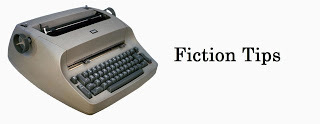1. Choosing the Right Words - Fiction Tips

Hey, guys. Here's the start of a few posts I'm going to be doing. Just some things I've learned--and have taught myself--regarding word choice, sentence length, paragraph structure, scene structure, and a super-neato introduction to what I call prose flow theory. (Schmancy, right?) Originally, this was going to be included in one of my classes but got cut for time. I still believe it's a pretty great handful of learnin', though. So now, in a way, you get to be my student. Yippie beans for you, right? No assigned seats, just don't stick your gum under the chairs please, thanks.
1. CHOOSING THE RIGHT WORDS
Propitious.
Don't know this one? It's cool, I just learned it the other day myself. It means (per Merriam-Webster) likely to turn out well, favorably disposed, or being of good omen. One of those Magic Eight Ball words. It's good to have a decent vocabulary, absolutely, but don't make your readers go running for the Dictionary every few lines. Your prose should match that of your average reader's vocab, if such a thing can be calculated.
EXAMPLE TIME! Are you composing a smarty-pantsed 1,000-page doorstop about manic-depressive scientists mucking about with string theory, that, while enriching in its own way, kind of reads like a textbook? Okay, then go ahead. Throw in some ten-cent words. Alternatively, are you writing a fluffy romp that you want your reader to rip through the entirety of over a day at the beach?
Then don't put speed bumps in there then, ya goof. Who brings a Dictionary to the beach?
Side note. That's not to say either is greater or lesser. There is high brow literary fiction and commercial fiction and numerous branches coming off of both, yeah, sure, but those are really just categories we humans dreamt up because, without any need to do any of that hunter/gatherer stuff anymore, we have time to slap labels on things unnecessarily. Books are books, words are words, quality is subjective, and there's no such thing as a guilty pleasure if a person has even a modicum of an idea of who they really are.
Sorry, good teacher mode from here on out.
Point being: Most advice e-dispensers on the Internet like myself will tell you you shouldn't write for anyone but yourself. And yeah, yeah, sure, that's true enough, but let's be frank here a moment. No one puts a huge amount of time and energy into writing anything unless they want to see it published.
And if you're writing with the intent of being read by anyone else besides yourself, you never are actually writing for yourself truth be told. But--let's brake a moment--you should write as if you're writing for yourself in the sense that you are creating a book that is, ideally, something you would want to read, right?
So, really, when you think about it . . . you, yourself, are the target audience of your own book.
BWOMMM.
(Why, yes, that was a super-tired Inception joke.)
With that in mind, while writing, did you have to go and find a new word you didn't know just to squeeze in a bit of "Look Ma, I is smart after all" into your novel? It's okay, we all do it. Just, from this point forward, stop. If you don't know it, your audience (that is you, remember) won't be impressed.
Tomorrow, we're going to be covering diversifying sentence length for optimum interest and flow and how to write a killer query letter. Hold on to your butts.
You can also find me elsewhere following any one of these linkie-loos:
Follow me on Twitter: MegaDeluxo
Like me on Facebook: Andrew Post - Author
Patronize me on Patreon
Published on July 30, 2014 07:58
No comments have been added yet.



